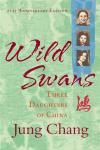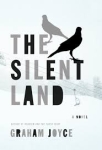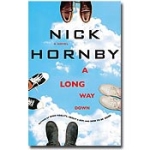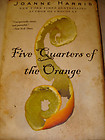





























|
2013
Reading Group Selections
|
|
|
January
8, 2013

Wild
Swans
by Jung Chang
Bursting
with drama, heartbreak and horror, this extraordinary family
portrait mirrors China's century of turbulence. Chang's grandmother,
Yu-fang, had her feet bound at age two and in 1924 was sold
as a concubine to Beijing's police chief. Yu-fang escaped
slavery in a brothel by fleeing her "husband" with
her infant daughter, Bao Qin, Chang's mother-to-be. Growing
up during Japan's brutal occupation, free-spirited Bao Qin
chose the man she would marry, a Communist Party official
slavishly devoted to the revolution.
In
1949, while he drove 1000 miles in a jeep to the southwestern
province where they would do Mao's spadework, Bao Qin walked
alongside the vehicle, sick and pregnant (she lost the child).
Chang, born in 1952, saw her mother put into a detention camp
in the Cultural Revolution and later "rehabilitated."
Her father was denounced and publicly humiliated; his mind
snapped, and he died a broken man in 1975. Working as a "barefoot
doctor" with no training, Chang saw the oppressive, inhuman
side of communism.
She
left China in 1978 and is now director of Chinese studies
at London University. Her meticulous, transparent prose radiates
an inner strength.
SOURCE:
Copyright 1991 Reed Business Information, Inc
|
February
5, 2013

The
Girl Who Loved Tom Gordon
by Stephen King
"The
world had teeth and it could bite you with them anytime
it wanted." King's new novelAwhich begins with that
sentenceAhas teeth, too, and it bites hard. Readers will
bite right back. Always one to go for the throat, King crafts
a story that concerns not just anyone lost in the Maine-New
Hampshire woods, but a plucky nine-year-old girl, and from
a broken home, no less. This stacked deck is flush with
aces, however.
King
has always excelled at writing about children, and Trisha
McFarland, dressed in jeans and a Red Sox jersey and cap
when she wanders off the forest path, away from her mother
and brother and toward tremendous danger, is his strongest
kid character yet, wholly believable and achingly empathetic
in her vulnerability and resourcefulness. Trisha spends
nine days (eight nights) in the forest, ravaged by wasps,
thirst, hunger, illness, loneliness and terror. Her knapsack
with a little food and water helps, but not as much as the
Walkman that allows her to listen to Sox games, a crucial
link to the outside world. Love of baseball suffuses the
novel, from the chapter headings (e.g., "Bottom of
the Ninth") to Trisha's reliance, through fevered imagined
conversations with him, on (real life) Boston pitcher Tom
Gordon and his grace under pressure. King renders the woods
as an eerie wonderland, one harboring a something stalking
Trisha but also, just perhaps, God: he explicitly explores
questions of faith here (as he has before, as in Desperation)
but without impeding the rush of the narrative.
Despite
its brevity, the novel ripples with ideas, striking images,
pop culture allusions and recurring themes, plus an unnecessary
smattering of scatology. It's classic King, brutal, intensely
suspenseful, an exhilarating affirmation of the human spirit.
SOURCE:
Copyright 1999 Reed Business Information, Inc.
|
|
March
5, 2013

The
Silent Land
by Graham Joyce
Near
the outset of this gently haunting fantasy thriller from British
author Joyce (Requiem), a freak avalanche buries Zoe and Jake,
a couple on a skiing holiday near the Pyrenean resort town
of Saint-Bernard-en-Haut. After digging out, they find themselves
the only inhabitants of the unnaturally silent landscape.
Back at their hotel, they discover they're still alone. All
their efforts to leave for the next town only bring them back
in a circle. Jake suspects that they've died—but then
Zoe begins seeing furtive figures and hearing snatches of
speech that suggest this likely explanation is more complex
than it seems.
Joyce
brings freshness to this familiar supernatural scenario by
emphasizing the humanness of his characters over the weirdness
of the phenomena. By the time the tale sounds its final bittersweet
note, readers will remember the passionate emotional bond
the two have shared and self-sacrifices that are the hallmark
of a love that can transcend death.
SOURCE:
(c) Copyright PWxyz, LLC. All rights reserved.
|
|
April
2, 2013

A
Long Way Down
by Nick Hornby
In
his fourth novel, New York Times-bestselling author Nick Hornby
mines the hearts and psyches of four lost souls who connect
just when they've reached the end of the line.
Meet Martin,
JJ, Jess, and Maureen. Four people who come together on New
Year's Eve: a former TV talk show host, a musician, a teenage
girl, and a mother. Three are British, one is American. They
encounter one another on the roof of Topper's House, a London
destination famous as the last stop for those ready to end
their lives.
In four
distinct and riveting first-person voices, Nick Hornby tells
a story of four individuals confronting the limits of choice,
circumstance, and their own mortality. This is a tale of connections
made and missed, punishing regrets, and the grace of second
chances.
SOURCE:
Copyright © BN.com. All rights reserved.
|
|
May
7, 2013

Sugar
by Bernice McFadden
With
her eponymous anti-heroine, debut novelist McFadden breaks
the mold of a venerable stereotype. Here, the hooker with
a heart of gold is instead a hooker with a past so tarnished
no amount of polishing can change her fate. As a baby, Sugar
is abandoned by her mother and raised by a trio of prostitutes
who run an Arkansas bordello. Turning tricks at age 12, and
leaving town four years later to try her luck in St. Louis
and then Detroit, brings more degradation, along with an ever-hardening
heart. Upon her mother's death in 1955, Sugar is willed a
modest home in Bigelow, Ark., but when she moves into town,
and supports herself the only way she knows, the female population
rises in wrath against her.
All
except Pearl, Sugar's next-door neighbor, who more than a
decade ago lost her beloved daughter, Jude, to a vicious rapist/murderer.
Pearl is struck by Sugar's uncanny likeness to Jude, and is
determined to become Sugar's friend in spite of vocal disapproval.
Although the two women are opposites in nearly every way,
they bring out the best in each other: Sugar convinces Pearl
to loosen up and accompany her to a Saturday night juke joint,
and Sugar promises to go to church for two months of Sundays.
Hypocritical
gossip spreads among the townsfolk and tension grows when
it turns out that nearly every married man in Bigelow pays
a visit to Sugar, leaving the apparently frigid wives planning
to run Sugar out of town. Pearl gives it her best shot to
transform Sugar, but both women's painful pasts come back
to haunt them in a crescendo of violent reenactments, betrayals
and surprising revelations leading to a poignant, bittersweet
ending. While hampered by a forced and compressed backstory,
a surfeit of maudlin moments and some overwriting that is
inadvertently funny, this ambitious first novel will appeal
to readers who can appreciate Sugar's determination to come
to terms with her past and fashion a viable future. Agent,
James Vines.
SOURCE:
Copyright 1999 Reed Business Information, Inc.
|
|
June
4,
2013

Five
Quarters of the Orange
by Joanne Harris
In
Five Quarters of the Orange, Joanne Harris returns to the
small-town, postwar France of Chocolat. This time she follows
the fortunes of Framboise Dartigan, named for a raspberry
but with the disposition of, well, a lemon. The proprietor
of a café in a rustic village, this crabby old lady
recalls the days of her childhood, which coincided with the
German occupation. Back then, she and her brother and sister
traded on the black market with the Germans, developing a
friendship with a charismatic young soldier named Tomas. This
intrigue provided a distraction from their grim home life--their
father was killed in the war and their mother was a secretive,
troubled woman. Yet their relationship with Tomas led to a
violent series of events that still torment the aging Framboise.
Harris
has a challenging project here: to show the complicated, messy
reality behind such seemingly simple terms as collaborator
and Resistance. To the children, of course, these were mere
abstractions: "We understood so little of it. Least of
all the Resistance, that fabulous quasi-organization. Books
and the television made it sound so focused in later years;
but I remember none of that. Instead I remember a mad scramble
in which rumor chased counter-rumor and drunkards in cafes
spoke loudly against the new regime." The author's portrait
of occupier and occupied living side by side is given texture
by her trademark appreciation of all things French. Yes, some
passages read like romantic, black-and-white postcards: "Reine's
bicycle was smaller and more elegant, with high handlebars
and a leather saddle. There was a bicycle basket across the
handlebars in which she carried a flask of chicory coffee."
But these simple pleasures, recorded with such adroitness,
are precisely what give Framboise solace from the torment
of her past.
SOURCE:
Copyright © Amazon.com. All rights reserved.
|
July
3, 2013

Ethan Frome
by Edith Wharton
`This
love story has an emotional intensity made all the more
poignant by the inarticulate reticence of Wharton's characters
- a menage a trois consisting of Frome, his querulous wife
and her young girl cousin. With quiet assurance, Wharton
conveys passion, malaise and tragedy with memorable impact.'
SOURCE:
Copyright © Sophia Sackville-West, Evening Standard
(London) All rights reserved.
|
August
3, 2013

Summer Shorts-Short Stories
by Popular Authors
"The
Robber Bridegroom" by The Brothers Grimm
"At the Gate" by Myla Jo Closser
"The Gift of the Magi" by O. Henry
"The Sound of Thunder" by Ray Bradbury
"One of these Days" by Gabriel Garcia Marquez
"Rikki-Tikki-Tavi" by Rudyard Kipling
"The Faith Cure Man" by Paul Laurence Dunbar
"The Possibiltiy of Evil" by Shirley Jackson
"The Birthmark" by Nathaniel Hawthorne
These
stories are available for free via the Internet.
The library also has some of them available in print in
story collections.
|
|
September
3, 2012

Handle
with Care
by Jodi Picoult
Starred
Review. Perennial bestseller Picoult (Change of Heart) delivers
another engrossing family drama, spiced with her trademark
blend of medicine, law and love. Charlotte and Sean O'Keefe's
daughter, Willow, was born with brittle bone disease, a condition
that requires Charlotte to act as full-time caregiver and
has strained their emotional and financial limits. Willow's
teenaged half-sister, Amelia, suffers as well, overshadowed
by Willow's needs and lost in her own adolescent turmoil.
When Charlotte decides to sue for wrongful birth in order
to obtain a settlement to ensure Willow's future, the already
strained family begins to implode.
Not
only is the defendant Charlotte's longtime friend, but the
case requires Charlotte and Sean to claim that had they known
of Willow's condition, they would have terminated the pregnancy,
a statement that strikes at the core of their faith and family.
Picoult individualizes the alternating voices of the narrators
more believably than she has previously, and weaves in subplots
to underscore the themes of hope, regret, identity and family,
leading up to her signature closing twists.
SOURCE:
Copyright © Reed Business Information, a division of
Reed Elsevier Inc. All rights reserved.
|
|
October
1, 2013

The Art of Racing in the Rain
by Garth Stein
If
you've ever wondered what your dog is thinking, Stein's third
novel offers an answer. Enzo is a lab terrier mix plucked
from a farm outside Seattle to ride shotgun with race car
driver Denny Swift as he pursues success on the track and
off. Denny meets and marries Eve, has a daughter, Zoë,
and risks his savings and his life to make it on the professional
racing circuit. Enzo, frustrated by his inability to speak
and his lack of opposable thumbs, watches Denny's old racing
videos, coins koanlike aphorisms that apply to both driving
and life, and hopes for the day when his life as a dog will
be over and he can be reborn a man.
When
Denny hits an extended rough patch, Enzo remains his most
steadfast if silent supporter. Enzo is a reliable companion
and a likable enough narrator, though the string of Denny's
bad luck stories strains believability. Much like Denny, however,
Stein is able to salvage some dignity from the over-the-top
drama.
SOURCE:
Copyright © Reed Business Information, a division of
Reed Elsevier Inc. All rights reserved.
|
|
November
5, 2013

Anil's Ghost
by Michael Ondaatje
While
he is generally considered a Canadian writer, Booker Prize-winner
Ondaatje was born in Sri Lanka, and he has chosen to set his
powerful and resonant new novel in that country during its
gruesome civil war in the mid-1980s. Written in his usual
cryptic, elliptical style, much of the story is told in flashbacks,
with Ondaatje hinting at secrets even as he divulges facts,
revealing his characters' motivations through their desperate
or passionate behavior and, most of all, conveying the essence
of a people, a country and its history via individual stories
etched against a background of natural beauty and human brutality.
Anil
Tessira, a 33-year-old native Sri Lankan who left her country
15 years before, is a forensic pathologist sent by the U.N.
human rights commission to investigate reports of mass murders
on the island. Atrocities are being committed by three groups:
the government, anti-government insurgents, and separatist
guerrillas. Working secretly, these warring forces are decimating
a population paralyzed by pervasive fear.
Taciturn
archeologist Sarath Diyasena is assigned by the government
to be Anil's partner; at 49, he is emotionally withdrawn from
the chaotic contemporary world, reserving his passion for
the prehistoric shards of his profession. Together, Anil and
Sarath discover that a skeleton interred among ancient bones
in a government-protected sanctuary is that of a recently
killed young man. Anil defiantly sets out to document this
murder by identifying the victim and then making an official
report. Throughout their combined forensic and archeological
investigation, detailed by Ondaatje with the meticulous accuracy
readers will remember from descriptions of the bomb sapper's
procedures in The English Patient, Sarath remains a mysterious
figure to Anil. Her confusion about his motives is reinforced
when she meets his brother, Gamini, an emergency room doctor
who is as intimately involved in his country's turmoil as
Sarath refuses to be.
The
lives of these characters, and of others in their orbits,
emerge circuitously, layer by layer. In the end, Anil's moral
indignation--and her innocence--place her in exquisite danger,
and Sarath is moved to a life-defining sacrifice. Here the
narrative, whose revelations have been building with a quiet
ferocity, assumes the tension of a thriller, its chilling
insights augmented by the visceral emotional effects that
masterful literature can provide. More effective than a documentary,
Ondaatje's novel satisfies one of the most exalted purposes
of fiction: to illuminate the human condition through pity
and terror. It may well be the capstone of his career.
SOURCE:
Copyright 2000 Reed Business Information, Inc.
|
|
December
3, 2013

Hush
by Jacqueline Woodson
When
Toswiah Green's father, witness to a murder, does the right
thing by testifying against two fellow police officers, he
puts his entire family in danger. Now the Greens have fled
for their lives, leaving behind all that is comfortable and
familiar for the alien existences laid out by the witness
protection program. Shifting between past and present, Woodson's
(Miracle's Boys; If You Come Softly) introspective novel probes
the complex reactions of 12-year-old Toswiah as she reluctantly
reinvents herself as Evie Thomas.
Telling
lies about her past is as awkward for Toswiah as her adjustment
to a new apartment, city and school, but most disturbing of
all is the fragmentation of her formerly close-knit family.
Toswiah's mother, searching for meaning and for support, becomes
an avid Jehovah's Witness. Mr. Green slips into suicidal depression,
and Toswiah's older sister, unbeknownst to their parents,
arranges to enter college at 15. "Evie/Toswiah Thomas/Green,"
as the narrator once refers to herself, taps hidden stores
of inner strength, ultimately realizing that "I am no
longer who I was in Denver, but at least and at most I am."
Readers
facing their own identity crises will find familiar conflicts
magnified and exponentially compounded here, yet instantly
recognizable and optimistically addressed. Ages 10-up.
SOURCE: Copyright 2001 Cahners Business Information,
Inc.
|
|













